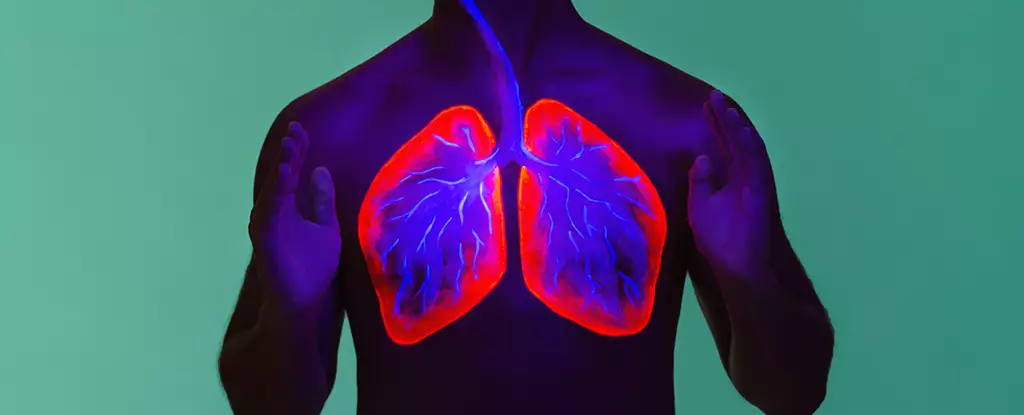When one considers lung cancer, the usual suspects that come to mind are tobacco use and environmental pollutants. However, recent findings from researchers at the University of Florida and the University of Kentucky have shed light on a different factor: our diets. Their exploration into glycogen, a molecule primarily associated with energy storage, suggests that diet could be a significant player in lung cancer risk, particularly in lung adenocarcinoma, the most prevalent form of lung cancer globally.
The research team discovered elevated levels of glycogen in lung adenocarcinoma tissue samples, indicating that this seemingly innocuous molecule could fuel cancer growth. Their experiments with mouse models revealed that increased glycogen levels led to accelerated tumor growth, whereas reducing glycogen restricted the progression of the disease. These findings bring into question the traditional understanding of lung cancer and its relationship with lifestyle choices, particularly diet.
A New Approach: Spatial Metabolomics
The investigation employed a method known as spatial metabolomics, which enables scientists to examine small molecules and their behavior within specific tissue contexts. This innovative technique allowed the researchers to visualize disease-related changes at a molecular level that were previously obscured. As Ramon Sun, a molecular biologist at the University of Florida, puts it, this approach has given researchers a “new lens” to comprehend the complexities of cancer.
The implications of this are profound; previous studies have primarily focused on well-known risk factors such as smoking and air quality, leading us to overlook the subtler influences of nutrition and diet on cancer development. The reliance on traditional analytical methods may have kept important dietary correlations in the shadows, making this new research a significant advancement in our understanding of lung cancer biology.
Glycogen and Cancer Growth: The Sweet Fuel
Glycogen is not just a benign storage form of glucose; it seems to act as a gas pedal for tumor growth, particularly in lung cancers. It is derived from carbohydrates, and its accumulation is often a result of high-fat, high-carbohydrate diets—characteristics typical of Western eating patterns. Notably, in the study, mice subjected to this diet presented with a marked increase in lung cancer proliferation compared to those on alternative dietary regimes. This correlation opens doors for conversation about how dietary optimization could potentially be integrated into cancer prevention strategies.
The research emphasizes the need for public health awareness similar to that of anti-smoking campaigns. As Sun suggests, promoting informed dietary choices is crucial. The key here is not only to identify which foods contribute positively to health but also to understand which could enhance disease risks. Thus, a reevaluation of our food intake habits is imperative as we consider their long-term impacts on our health.
Broader Implications of Dietary Influence on Health
While the exact relationship between diet and lung cancer is still under investigation, it is essential to acknowledge the broader implications of these findings. As researchers continue to delve deeper into the intricate connections between nutrition and cancer risk, we could potentially redefine dietary guidelines to not only promote overall health but also to prevent specific diseases like lung cancer. The idea that lung cancer could be influenced by what we eat challenges conventional narratives surrounding cancer development and prevention.
The conventional thinking that associates diet primarily with gastrointestinal cancers must broaden. It should include respiratory disorders as well, reiterating the complex interplay between various bodily systems. Just as it’s acknowledged that excessive red meat consumption and alcohol intake heighten the risk of certain cancers, it might now be time to seriously consider how our carbohydrate-heavy diets elevate our vulnerability to lung cancer.
The ongoing research signifies a transformative moment in cancer prevention strategy development, calling for immediate action in adjusting dietary policies to reflect emerging evidence. Our understanding of lung cancer as solely a result of environmental exposure must incorporate the nutritional dynamics of disease management and prevention.


Leave a Reply